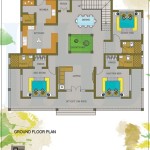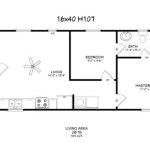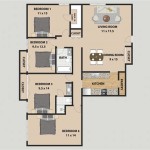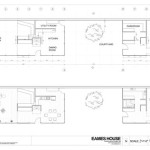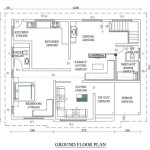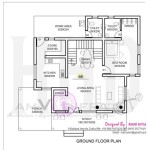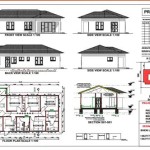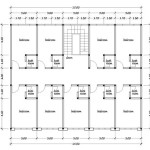Small Living Floor Plans: Essential Aspects
Embracing the concept of small living has become increasingly popular, offering a mindful and sustainable approach to homeownership. Small living floor plans present unique opportunities for maximizing space, optimizing flow, and creating functional yet inviting living environments. This article delves into the essential aspects of small living floor plans, empowering you to design a home that meets your needs and aspirations.
Space Allocation
Efficient space allocation is crucial in small living floor plans. Every square footage must serve a specific purpose without creating a cluttered or cramped atmosphere. Consider using built-in storage solutions, such as wall-mounted shelves, under-bed drawers, and pull-out pantries, to maximize vertical space and keep items organized. Open floor plans, where living, dining, and cooking areas flow seamlessly into each other, create an illusion of spaciousness and improve functionality.
Natural Light and Ventilation
Natural light and proper ventilation are essential for any living space, but they are particularly important in small homes. Large windows and skylights allow ample natural light to enter, making the space feel brighter, more inviting, and healthier. Cross-ventilation, achieved by placing windows on opposite walls, ensures proper airflow and air circulation, creating a comfortable and refreshing indoor environment.
Verticality
Incorporating vertical space is a smart strategy for small living floor plans. Loft beds, built-in bunk beds, and vertical gardens not only save floor space but also add an element of architectural interest. Stackable storage, such as modular shelves and bins, utilizes vertical space efficiently, while hanging baskets and wall-mounted planters bring greenery into the home without taking up valuable floor area.
Flexibility and Multi-Functionality
Small living floor plans demand flexibility and multi-functionality. Furniture pieces that serve multiple purposes, such as a sofa that converts into a bed or a coffee table with built-in storage, are ideal for maximizing space. Retractable walls, sliding doors, and convertible furniture allow for easy transformation of spaces, creating separate areas for sleeping, working, or entertaining as needed.
Smart Storage Solutions
Smart storage solutions are the key to maintaining a clutter-free and organized small living space. Hidden storage compartments within furniture, such as ottomans with built-in drawers or armrests with hidden storage, provide ample space for storing items without sacrificing aesthetics. Wall-mounted organizers, such as pegboards and spice racks, keep frequently used items within easy reach and free up countertop space.
Minimalism and Decluttering
Embracing minimalism and decluttering principles are essential for small living floor plans. By paring down possessions to what is truly necessary and regularly decluttering, you can create a more spacious and peaceful environment. Focus on investing in high-quality, sustainable items that serve multiple purposes and avoid unnecessary clutter or impulse purchases.
Conclusion
Creating a small living floor plan that is both functional and aesthetically pleasing requires careful planning and thoughtful consideration. By implementing these essential aspects, you can design a home that meets your unique needs, promotes well-being, and enhances your overall living experience. Remember, small living is not about sacrificing comfort but about embracing a mindful and fulfilling way of life.

Small Home Design Live 3d

Small House Plans With Pictures Houseplans Blog Com

27 Adorable Free Tiny House Floor Plans

Small Living Room Layout 8 Design Tips

House Plans Under 50 Square Meters 30 More Helpful Examples Of Small Scale Living Archdaily

Small House Plans Simple Tiny Floor Monster

Two Bedroom Small House Design Shd 2024030 Pinoy Eplans

Small House Plans Floor Plan 1 Bedrms Baths 744 Sq Ft 161 1186

10 Small House Plans With Open Floor Blog Homeplans Com

Small House Plans With Storage The Designers

